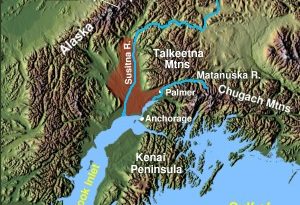U.S. Army unveils Arctic strategy as relations with Russia plunge into deep freeze
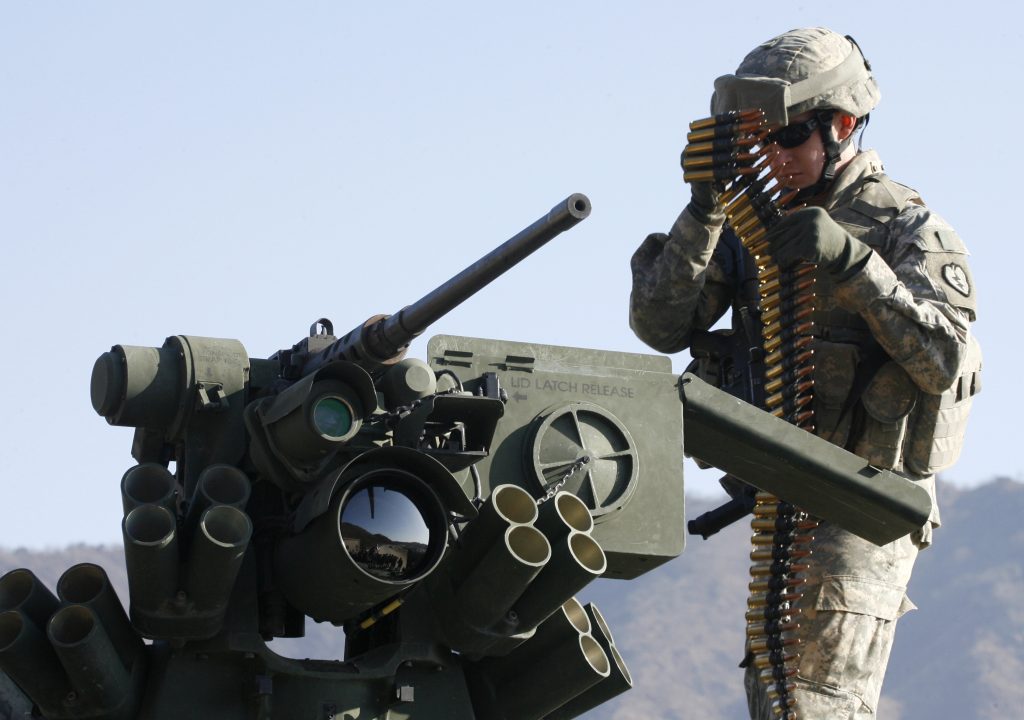
The U.S. Army became the latest branch of the American military on Tuesday to unveil an unclassified version of its strategy for “regaining Arctic dominance” just as already frosty relations between Washington and Moscow plunged to an even deeper freeze.
The strategy entitled Regaining Arctic Dominance: The U.S. Army in the Arctic lays out in large brushstrokes how the Army can prepare for the challenges facing it in its operations in the U.S. Arctic but also across the circumpolar region.
“The Arctic is simultaneously an arena of competition, a line of attack in conflict, a vital area holding many of our nation’s natural resources, and a platform for global power projection,” the strategy says.
The document, signed by U.S. Army’s Chief of Staff Gen. James C. McConville and Secretary of the Army Ryan D. McCarthy, commits the Army to fielding a Multi-Domain Task Force-enabled division and adjusting its Alaskan-based brigade combat teams to “regain the U.S. Army’s Arctic dominance.”
“With increasing levels of adversary activities in the Arctic region, it is essential for the U.S. Army to employ a calibrated force posture with units that are manned, trained, and equipped to maintain a credible deterrence and the first line of defense of the homeland,” the strategy reads.
The document presents the Arctic as “a shared region and a potential corridor for strategic competition” where “overlapping relationships and organizations complicate the geopolitics of the region.”
‘A contested space’
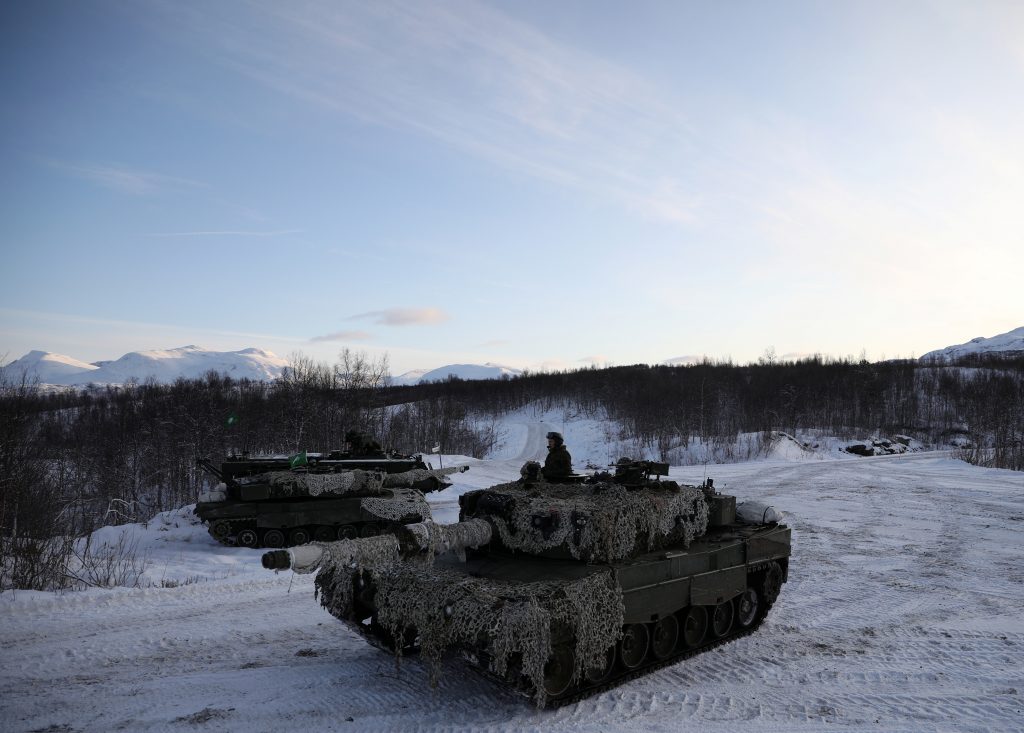
The strategy also calls on the U.S. Army to “collaborate with key allies and partners in the Arctic,” working through bilateral and multilateral forums, to “increase interoperability and extreme cold weather, mountain, and high-altitude operations expertise.”
The document positions Russia and China as the main U.S. adversaries in the Arctic.
“The Arctic has the potential to become a contested space where United States’ great power rivals, Russia and China, seek to use military and economic power to gain and maintain access to the region at the expense of U.S. interests,” the strategy reads.
The strategy acknowledges that “Russia’s efforts to reconstitute its military posture in the Arctic are primarily for territorial defense purposes and protection of Russia’s second-strike capabilities.”
“However, growing offensive capabilities – consisting of hypersonic cruise missiles and precision-strike munitions – designed to be undetectable to the U.S., constitute an effective offensive threat,” the strategy reads.
“Russia’s modernized subsurface and surface naval presence, supported by unmanned underwater vehicles (UUV) and combined with its electronic warfare capabilities, will have a strategic effect on U.S. homeland defense,” it adds.
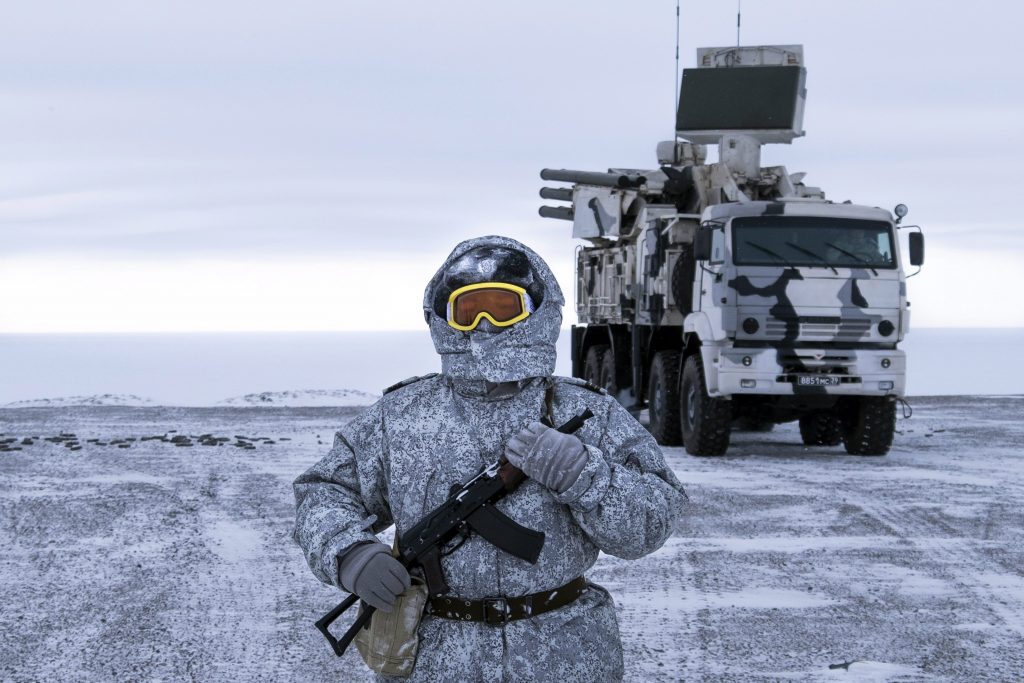
The release of the U.S. Army strategy coincides with a growing diplomatic rift between Russia and the U.S.
Moscow recalled its ambassador to Washington on Wednesday for consultations on the future of U.S.-Russia ties after U.S. President Joe Biden said Russian President Vladimir Putin would “pay a price” for alleged election meddling.
The strategy also points to China’s attempts to “normalize its presence” in the Arctic.
“Beijing’s interest in the Far North, accelerated over the last decade, is widely viewed as a preemptive bid for control of economic resources in the region,” the document says. “China’s increased physical presence in the Arctic, combined with Russia’s growing economic and military ambitions in the region, highlight how both nations have long-term strategic designs for the Arctic.”
To counter these challenges and threats the strategy calls for the U.S. Army to improve its Arctic capability, ensure that it has the right equipment to operate in the harsh environment and terrain, improve individual and collective training, and adjust its posture in the region.
‘Enormous difficulties to overcome’
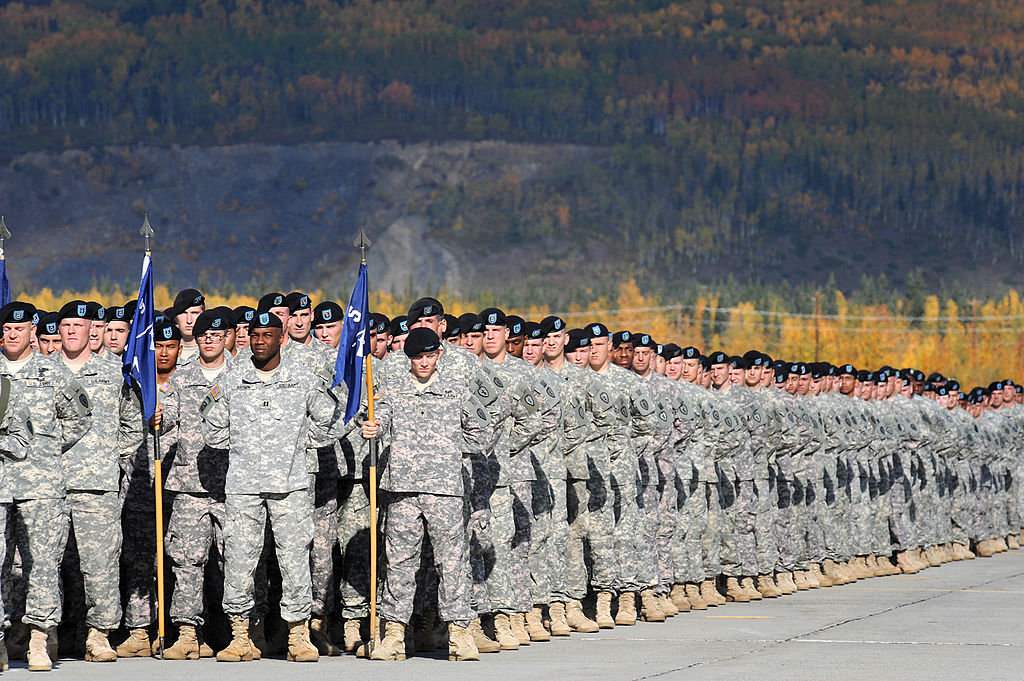
Troy Bouffard, director of the Center for Arctic Security and Resilience at the University of Alaska Fairbanks, said the new strategy is an effective and comprehensive consideration of the challenges and opportunities involving land forces operating in the Arctic.
“However, there are enormous difficulties to overcome in order to achieve proficiency in the ability to conduct sustained operations as well as contribute to the ultimate measure of military success involving precision enabled, combined arms warfare – something Russia is much further along in terms of capabilities,” Bouffard said.
“The U.S. Army, especially the Alaska units – of which I once served with, has done an outstanding job pursuing Arctic-like capabilities under the circumstances though, namely without a national mandate to do so.”
Bouffard identified two very significant hurdles the U.S. Army will have to overcome on its road to regaining dominance in the Arctic.
First, it needs to establish a qualification program for extreme cold weather certification, which currently doesn’t exist, Bouffard said. Then, it has to overcome the massive challenge of ground mobility issues in the Arctic, he added.
“To that end though, the development of an interim Arctic Brigade will provide an excellent approach in confronting such difficulties through a proof-of-concept arrangement,” Bouffard said.
“Ultimately, an Arctic Division will provide the standard model to meet national readiness requirements to meet any Arctic mission as a service component and/or part of a joint or international force.”
Related stories from around the North:
Canada: Russian hypersonic ‘Dagger’ demands rethink of North American defences, experts say, Eye on the Arctic
Finland: US missiles: Finnish, Russian presidents call for dialogue at Helsinki meeting, Yle News
Iceland: Iceland & UK sign agreement to boost security, defence cooperation, Eye on the Arctic
Norway: Norway absent from massive US-led multinational drill in Europe next year, The Independent Barents Observer
Russia: Russia’s top general indirectly confirms Arctic deployment of Kinzhal missile, The Independent Barents Observer
Sweden: Swedish soldiers take part in Finnish naval exercise, Radio Sweden
United States: NORAD modernization to dominate agenda of Canada-U.S. defence relations, experts say, Eye on the Arctic

